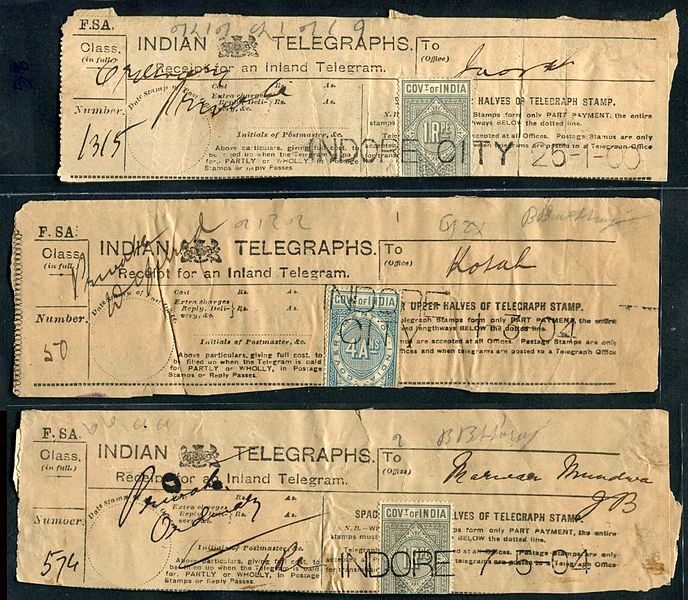We recently discussed how the telegraph network really represented the world’s first internet, allowing rapid worldwide communication and the transfer of images. This past Tuesday marked a critical milestone, the closing of the Indian Telegraph Service after 153 years in operation. More profoundly, it was the last major telegraph system in the world to shut its doors, making its silencing truly the end of a world era. This service has been referred to as “Ghandi’s email or internet.” It was the pulpit from which he broadcast to the world the case for Indian independence from Great Britain. At its peak in 1985 the service sent 600,000 telegrams a day across India. It had 45,000 telegraph offices. At the time of its closing the message volume had dwindled to a mere 5,000 a day and the number of offices to seventy-five.
Still we may reflect on the way in which technologies evolve, reach their zenith, and then decline only to be consumed and replaced by something new and better. There are the long-lived, truly world-defining technologies like the telegraph, the telephone, and the internet, and there are transitional technologies like the eight track tape and the analogue cell phone that are here today and rapidly evolve to something better.
Of course, the word now is “rapidly.” Technology changes our lives so quickly today that we are continuously in danger of becoming technical dinosaurs and the subject of ridicule by our children – the very children that must, in the course of time, truly inherit the Earth.

